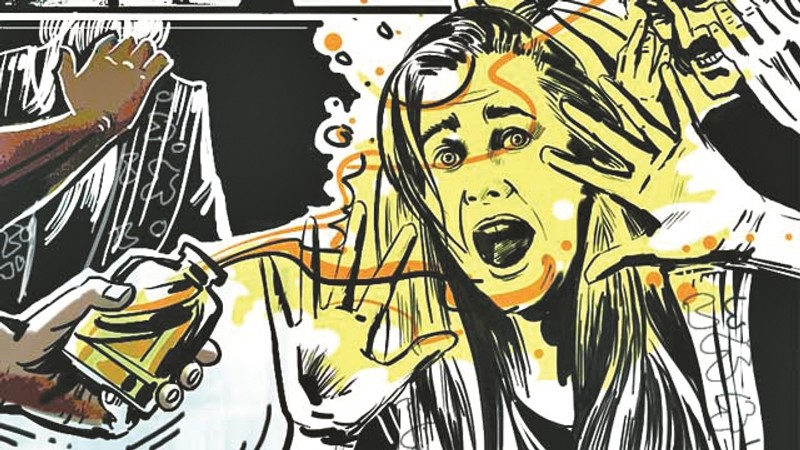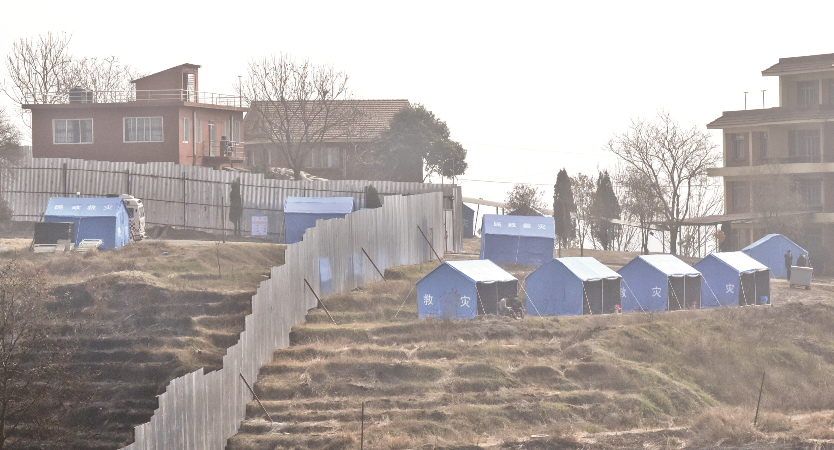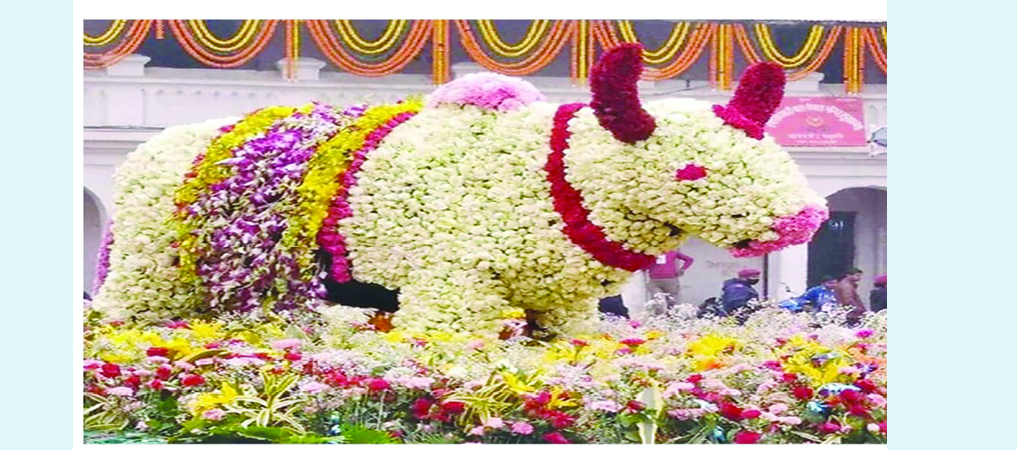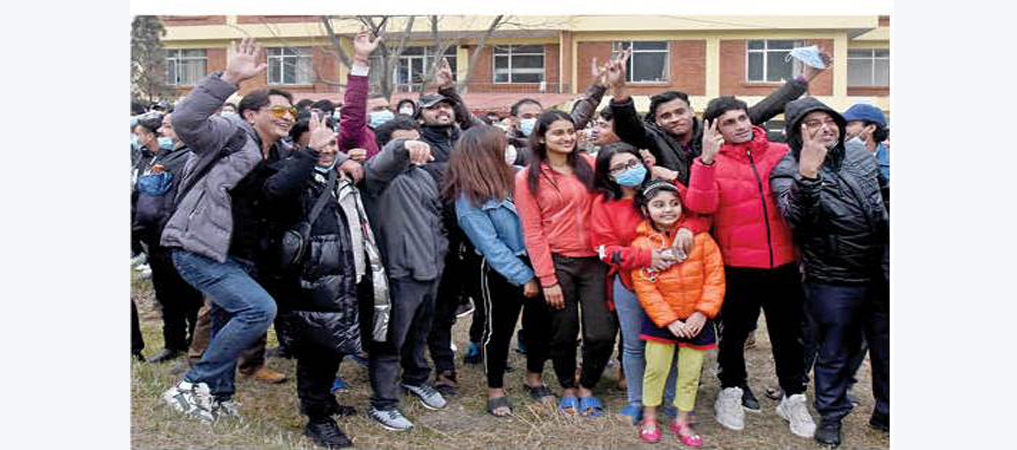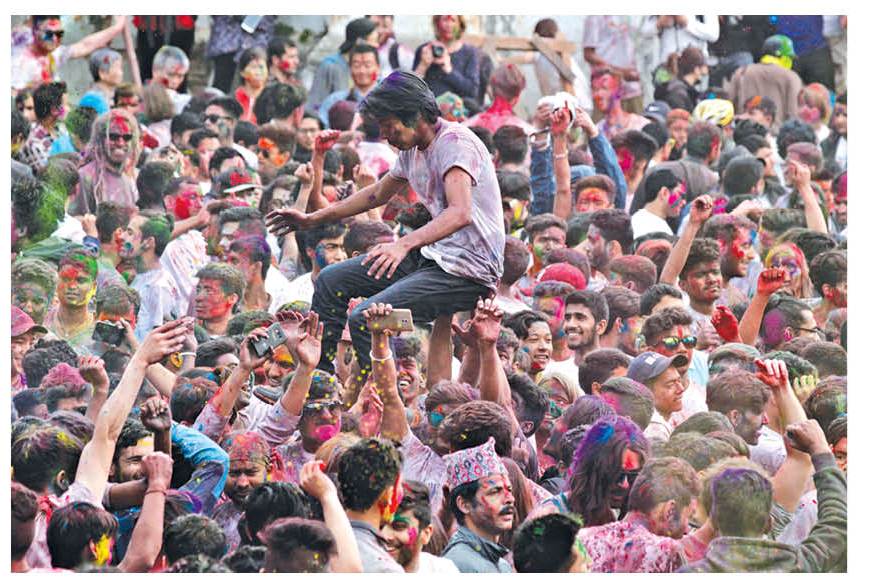Increase border surveillance to check Omicron: Experts

By Sampada A. Khatiwada
Kathmandu, Dec. 16: Three weeks after the new COVID-19 Omicron variant became a global concern, the World Health Organisation (WHO) has warned that the variant is spreading faster than any previous strain and is probably present in most of the countries in the world.
“Omicron is spreading at a rate we have not seen with any previous variant,” WHO Director-General Tedros Adhanom Ghebreyesus said during a COVID-19 update in Geneva.
According to the WHO, 77 nations have reported cases of Omicron until today.
As research and study are going on to ascertain the severity of the new strain, the WHO Director-General said, “Even if Omicron causes less severe disease, the sheer number of cases could once again overwhelm unprepared health systems.”
Although only two cases of the Omicron variant have been reported in Nepal, the public health experts have urged people to stay in high alert and strictly abide by the health and safety standards to prevent the Omicron outbreak and yet another wave of the pandemic in Nepal. Dr. Sher Bahadur Pun, coordinator at the Clinical Research Unit in Sukraraj Tropical and Infectious Disease Hospital, said, “As reported by the Italian Scientists, mutations in protein spike of Omicron variant are two times higher than Delta variant. This shows that the variant is contagious in nature.”
Dr. Pun said that in order to prevent the spread of Omicron in Nepal, surveillance should be increased in the airport and all border points. “The variant is likely to enter Nepal especially from the Tribhuvan International Airport (TIA) and Nepal-India border. Thus, the number of COVID-19 tests should be increased in these areas.”
He also added that the entire health fraternity of the nation should now implement the lessons taught by the previous waves regarding the importance of preparedness.
Similarly, public health specialist Dr. Rabindra Pandey said, “Along with ensuring effective monitoring system at the border areas, the government should intensify the ongoing vaccination campaign to protect the public from Omicron.”
“As it has been found that two-dose vaccines are likely to protect against severe disease caused by the virus, children’s access to anti-coronavirus vaccines should be ensured all across the nation,” he said.
Dr. Pandey added, “The UK reported first Omicron-related death two days ago. Also, thousands of patients are battling with the new variant in ICUs. In this scenario, it is vital for all of us to follow public health standards.”
Stating that flouting the health protocols due to the convention of various political parties and wedding season had further increased the risk of spread of coronavirus including Omicron. “If we do not comply with the health and safety standards then the situation could go out of control in the days to come,” added Dr. Pandey.
Meanwhile, the Ministry of Health and Population (MoHP) has intensified gene sequencing tests in order to increase the monitoring of Omicron. Dr. Krishna Prasad Poudel, spokesperson at the MoHP, said, “We have been performing whole-genome sequencing tests in order to identify the situation and impact of the new variant in Nepal.”
He also informed that the government had been monitoring the COVID-19 daily infection graph. “We have alerted the entire healthcare system,” Dr. Poudel said.Similarly, Dr. Samir Kumar Adhikari, assistant spokesperson at the Health Ministry, said, “The gene sequencing tests are being performed in those COVID-19 positive swab samples where S-gene is not detected. Failure to detect S-gene hints the presence of Omicron.”
Dr. Adhikari further went on to say that along with intensifying COVID-19 tests and gene sequencing, the government was also preparing to conduct the vaccination campaigns rapidly.
Recent News

Do not make expressions casting dout on election: EC
14 Apr, 2022
CM Bhatta says may New Year 2079 BS inspire positive thinking
14 Apr, 2022
Three new cases, 44 recoveries in 24 hours
14 Apr, 2022
689 climbers of 84 teams so far acquire permits for climbing various peaks this spring season
14 Apr, 2022
How the rising cost of living crisis is impacting Nepal
14 Apr, 2022
US military confirms an interstellar meteor collided with Earth
14 Apr, 2022
Valneva Covid vaccine approved for use in UK
14 Apr, 2022
Chair Prachanda highlights need of unity among Maoist, Communist forces
14 Apr, 2022
Ranbir Kapoor and Alia Bhatt: Bollywood toasts star couple on wedding
14 Apr, 2022
President Bhandari confers decorations (Photo Feature)
14 Apr, 2022





